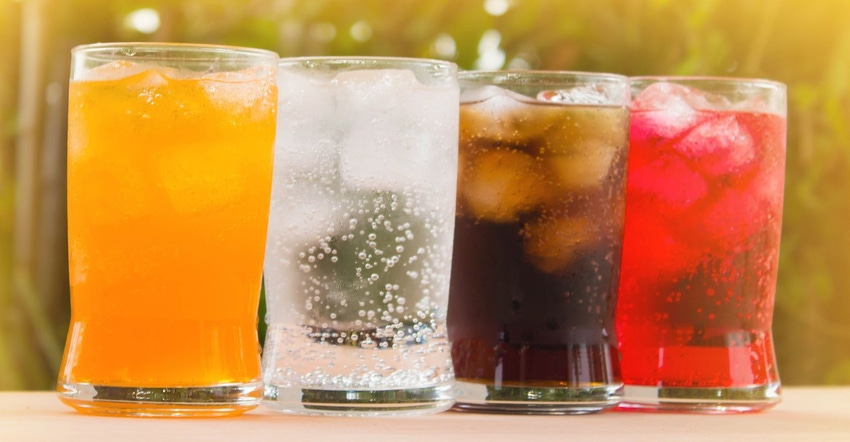Swapping sugary drinks for no- or low-calorie options may improve body weight, according to new research.

Replacing sugar-sweetened beverages (SSBs) with low- or no-calorie sweetened beverages led to reductions in body weight, body mass index (BMI) and body fat, according to findings of a new systematic review and meta-analysis (JAMA Netw Open. 2022;5[3]:e222092). Making the switch from SSBs to water, however, did not.
The analysis, published in JAMA Network Open, also found minor improvements in cardiometabolic risk factors in those who made the switch to low- or no-calorie sweetened beverages from sugary drinks.
The analysis included 17 randomized controlled trails (RCTs) and comprised a total of 1,733 adults (77.4% women and 22.6% men) who were overweight or obese and had diabetes or were at risk for diabetes. SSBs were swapped for low- or no-calorie sweetened beverages in 12 RCTs (affecting 601 participants) and for water in three RCTs (affecting 429 participants). Nine trials studied the impact of substituting low- or no-calorie sweetened beverages for water (affecting 974 participants).
Of the trials, eight reported which no- or low-calorie sweetener was used. The sweeteners studied included aspartame, saccharin, Reb (Rebaudioside) A and sucralose, as well as an aspartame and acesulfame potassium (K) blend.
Findings showed substituting low- or no-calorie sweetened beverages for sugary drinks made the greatest impact, including reductions in body weight, BMI, percentage of body fat and intrahepatocellular lipid content—a marker associated with impaired insulin signaling. Substituting low- or no-calorie sweetened beverages for water also showed reductions in body weight, as well as reductions in systolic blood pressure and glycated hemoglobin A1c (a marker of glycemic control).
Substituting water for SSBs was not associated with any outcome, findings showed.
According to NHANES (National Health and Nutrition Examination Survey) data in the 2020-2025 Dietary Guidelines for Americans (DGAs), sugary drinks are the leading source of added sugars in the American diet. CDC warned frequent consumption of SSBs is associated with serious health conditions, including obesity, type 2 diabetes, heart disease, kidney diseases and non-alcoholic liver disease, among others.
“Although water is considered to be the standard-of-care substitution for SSBs by authoritative bodies, with many health organizations recommending against the use of low- or no-calorie sweetened beverages, the existing evidence confirms the intended benefits of low- or no-calorie sweetened beverages as a substitute for SSBs over the moderate term,” researchers wrote. “For habitual consumers of SSBs with overweight or obesity, who are at risk for or have type 2 diabetes, and who are unable to switch to water, low- or no-calorie sweetened beverages may provide a viable alternative.”
Current dietary guidance, including the 2020-2025 Dietary Guidelines for Americans and Canada’s Food Guide, recommend reducing intake of sugary drinks while increasing consumption of water and unsweetened beverages—stopping short of recommending low- or no-calorie sweetened beverages as part of a healthy diet. Similarly, the American Heart Association provides a narrow indication for use of low- or no-calorie sweetened beverages.
“The findings of this study can inform guidance on the role of low- or no-calorie sweetened beverages in sugar-reduction strategies,” study authors wrote.
Ongoing research, combined with innovative natural sweetener ingredients and flavor systems, can ensure consumers have access to better-for-you beverages that balance health and enjoyment.
Rachel Adams joined Informa’s Health & Nutrition Network in 2013. Her career in the natural products industry started with a food and beverage focus before transitioning into her role as managing editor of Natural Products INSIDER, where she covered the dietary supplement industry. Adams left Informa Markets in 2019.
About the Author(s)
You May Also Like






